In a pre-dawn dusk I began my walk to our favourite "hill" or what the locals call "The View Point" just behind the Eagle's Nest Hotel to watch the sun rise. Alan was feeling slightly better but decided to give the early morning walk a miss. Even though it was quite dark, the sky appeared to be cloudy and I feared that I may not be able to witness the very special dawn for which Duikar is so famous. Furthermore, the clouds seemed to be closing in, clinging to the mountain peaks and obscuring their wonderful craggy summits. I was hoping they would not prevent my only opportunity for some good photos.
The walk to the top of the hill, whilst only taking some five minutes or so, was extraordinarily steep and at a elevation of 2,900 meters the climb really took my breath away. But the views at the top were even more breathtaking. In the total silence of the pre-dawn I sat waiting for the sun to rise and an opportunity to photograph my favourite mountain Lady Finger or Bublimating, a distinctive razor sharp rock spire of some 6,000 meters in the Batura Mustagh, the western most sub-range of the Karakoram Mountains.
As the first rays of sun began to warm my back I heard a faint whine of an aircraft overhead. It must have been at a very high altitude as try as I might I could not see it. I thought idly of whether it may be one of the US drones that had been dropping bombs in Waziristan Province. Who knows. I was totally on my own and even looking down into the Duikar village, there was not a soul to be seen. I was thoroughly absorbed by the euphoria of a dawn solitude at Duikar.
And suddenly the clouds cleared enough for me to take a number of photos. I sat perched on the hill top, the sun now providing some much needed warmth. The wait was worthwhile, the clouds dissolved and I was finally able to see the magnificent knife sharp spire of Lady Finger.
The village slowly awoke. Goats were bleating and local farmers had begun work. A few women appeared in the small stone walled plots and began chipping and weeding. Dawn was over. The day had begun.
To my relief, Alan was looking miles better when I arrived back at the hotel. Mr Ainullah and his son Ali Madad suggested that we take breakfast on the terrace area outside the restaurant. A simple occasion but it was one so pleasant that it will stay in our minds for a very long time. The views were fabulous and the breakfast of fresh fruit and scrambled eggs in the warm morning sun was delicious. Sadruddin arrived and Mr Ainullah and Ali Madad sat talking with us for some time. We were in no hurry and the opportunity for a long and relaxing breakfast suited us perfectly. Even Alan had gone from looking green to just pale.
When we visited the Hunza in 2009 we were privileged to meet Ishaq Ali and Sadruddin's family at their home not far from Eagle's Nest Hotel. Once again we had the same pleasure. We were always made to feel like part of the family and we were delighted to meet again with Ishaq's and Sadruddin's fathers and also Sadruddin's older brother Badruddin, a university lecturer in Karimabad. Our welcome was warm and friendly and we thoroughly enjoyed tea and dried fruits in their charming rose garden.
The older men looked extremely well and were delightful people to be with. Ishaq Ali's father had lived a most interesting life, being formerly a senior advisor to the last Mir of the Hunza. At the grand age of 94 years, he was a very fit looking and handsome man. Although our conversation was through Sadruddin's interpretation, we did pick up the word "mazardar" which he used often when speaking to us. Softly spoken, it took on a somewhat melodic tone and later we asked Sadruddin what it meant. "Of the very best taste, or even delicious" he replied. We liked the word so much that we now have a kitten called Mazardar - and a cat called Hunza...
Sadruddin's father, also in his 90's was just like Sadruddin, with laughing eyes and a great sense of humour. We did not meet Ishaq Ali's mother as she was not well but I have included wonderful photos of her which were kindly sent to me by Ishaq Ali, in the following entry "Gallery of Karimabad and the Hunza Area". And sadly, Ishaq could not join us at Karimabad either, once again because of inclement weather conditons which had prevented any flights from Islamabad to Gilgit for the last week.
At an altitude of 2,500 meters, the Hunza Valley in the northern most part of Gilgit-Baltistan extends for some 7,900 square kilometers. It borders China to the north and the Pamir Mountain ranges to the north-east. The Hunza was formerly a princely state and one of the most loyal vassals to the Maharajah of the hotly disputed states of Jammu and Kashmir. It survived as a state governed by a prince or "Mir" for more than 900 years until it was dissolved by President Zulfikar Ali Bhutto in 1974.
The Nagar Valley, another former princely state which is often mistakenly referred to as part of the Hunza, occupies the entire south side of the valley and the north side down to Chalt.
Surrounded by spectacular mountain peaks, several above 6,000 meters, the Hunza area was once a major draw card for the Pakistan tourist industry. The beautiful valley comprises terraced, stone walled farmland and orchards of apricots (Hunza is world famous for its dried apricots), peaches, plums, apples, grapes, cherries and walnuts irrigated by stone channels that divert glacier melt water. Ever present poplar trees provide a fast growing source of fodder, firewood and timber.
The people of the Hunza are largely Ismaili Muslims. A split off from the Shiites, these people are far less regimented than their counterpart Shiites and Sunnis, practising a more practical approach to their religion. Their mosque is more of a community hall called a jamaat khana and their style of prayer is more of a personal matter with no prostrating and without strict adherence to Ramadan. Ismailis are guided by the spiritual leader His Highness the Aga Khan whose message is one of religious tolerance, with a strong emphasis on education, health, and the fostering of community business and wealth through tourism. The Aga Khan, although not living in Pakistan, provides substantial funding for community projects and is held in very high esteem by the local people.
Karimabad, also known by its ancient name of Baltit, is the capital of the Hunza Valley area. It is home to the magnificent Baltit Fort that served as a royal palace for over 750 years and the ancient fort of Altit and its quaint 1,000 year old village.
Our day was spent in the lovely township of Karimabad. On our last travels we had visited Baltit and Altit Forts and we had no special plans for the day - which suited us down to the ground. A quiet day was just what we needed, particularly for Alan.
Following the arrival of the Karakoram Highway, tourism and overseas aid, Karimabad had prospered and the bazaar filled with hotels, restaurants, craft shops and travel agencies. With its wonderful setting, splendid forts, good food and friendly people it was once a thriving tourist town and a popular base for the many excellent trekking opportunities in the surrounding area. Sadly, today many of the hotels and shops are closed, and there are few, if any tourists to be seen.
Karimabad however, still maintains a very pleasant and some what laid back atmosphere. We wandered with Sadruddin along the steep cobbled streets that wind up to the main part of town. We were disappointed that the well known Cafe de Hunza was closed for the day. It is a great place to sit and enjoy a good cup of coffee and the walnut cake for which the cafe is so famous. It is also a good source for books on the local area.
There were however still enough craft and jewellery shops to keep us interested. On our last travels we found several very good jewellery shops and in one we were very taken by an extraordinarily beautiful necklace of large modern cut Afghanistani lapis lazuli stones. The necklace was understandably expensive and despite Alan's usually very effective negotiation skills, he was unable to reduce the price to any reasonable degree. We were not willing to risk paying such a large amount for a piece of jewellery that we really could not be sure was genuine lapis so regretfully, we had declined the purchase. On returning to the shop on this occasion, we were amazed that the very same necklace was still for sale - at about one third of the original price. We did not hesitate this time and after some mild bargaining we bought it. It is truly beautiful.
We stayed again at the Hunza Embassy Hotel. The hotel has wonderful views of the surrounding mountains, the rooms are comfortable if a bit dark and there are very pleasant outside terrace areas. The restaurant is well known for its excellent food and the staff is friendly and helpful.
Late in the afternoon I walked from the hotel to Karimabad village. Cafe de Hunza was open and I spent some time browsing through their books before buying a paper back publication on the Kalasha people. Friends of Ishaq and Sadruddin, the owners of the Cafe de Hunza were very friendly as were the local people in the shops, and also those I met on my walk. A curious young school girl asked me what country I was from and chatted with me for some time.
My mission however was to buy food and beer. Karimabad was one of the few places where we had seen beer for sale and openly displayed in the shop windows. It was obviously for tourists as it cost me around US $8 per can. I could understand however that the impoverished shop owners needed to make every bit of money they could during such tourist depleted times. Local spices were also on my shopping list and I managed to buy several sealed packets of curry and biryani mixes. Australia has one of the strictest quarantine systems in the world so it was necessary as usual to thoroughly check the seals.
Armed with my beer, nibblies, spices, book and a Pakistani styled top I had bought, I wandered happily back to the hotel down through the cobbled lane ways, just as I had late one evening during our 2009 trip. Like then, a number of men stopped to ask me where I was from, said how good it was to see tourists and wished me well with my trip. And like my previous visit, I was more concerned about my hopeless sense of direction and getting lost rather than any safety issues. Yes, even in the small village of Karimabad I could easily get lost.
Early in the evening we sat outside on one of the hotel terraces, enjoying our beer and the splendid views of the snow covered mountains at sunset. I was rather saddened by the fact that it was our last "real" day in Pakistan. The next morning we were heading across the Attabad Lake and on to Sost, our last stop before our bus journey over the Khunjerab Pass and into China. We were however looking forward to the ferry trip across the lake....
Memories of our Stay at the Lovely Eagle's Nest Hotel, Duikar
..
The Solitude of a Dawn in Duikar
Tuesday, May 10, 2011
 Karimabad, Gilgit-Baltistan, Pakistan
Karimabad, Gilgit-Baltistan, Pakistan
Other Entries
-
18Today: The First Day of the Remainder of Your Life
Apr 2515 days prior Kerman, Iranphoto_camera16videocam 0comment 0
Kerman, Iranphoto_camera16videocam 0comment 0 -
19Yazd - Such a Lovely Place, Such a Lovely Place...
Apr 2713 days prior Yazd, Iranphoto_camera14videocam 0comment 0
Yazd, Iranphoto_camera14videocam 0comment 0 -
20Toward Esfahan - "The Jewel of Ancient Persia"
Apr 2812 days prior Esfahan, Iranphoto_camera34videocam 0comment 0
Esfahan, Iranphoto_camera34videocam 0comment 0 -
21A Gorgeous Carpet, Jolfa and Fascinating Abyaneh
Apr 3010 days prior Abyaneh, Iranphoto_camera9videocam 0comment 0
Abyaneh, Iranphoto_camera9videocam 0comment 0 -
22Photo Gallery of Abyaneh Village
Apr 3010 days prior Abyaneh, Iranphoto_camera13videocam 0comment 0
Abyaneh, Iranphoto_camera13videocam 0comment 0 -
23Destination Tehran - Reflections on our Travels
May 019 days prior Tehran, Iranphoto_camera13videocam 0comment 0
Tehran, Iranphoto_camera13videocam 0comment 0 -
24Osama bin Laden Dead - Our Travel Plans in Chaos
May 028 days prior Dubai, United Arab Emirates, United Arab Emiratesphoto_camera11videocam 0comment 0
Dubai, United Arab Emirates, United Arab Emiratesphoto_camera11videocam 0comment 0 -
25For Better or For Worse - We Head off to Islamabad
May 037 days prior Islamabad, Pakistanphoto_camera4videocam 0comment 0
Islamabad, Pakistanphoto_camera4videocam 0comment 0 -
26Eclectic Chitral - North West Frontier Province
May 046 days prior Chitral, Pakistanphoto_camera14videocam 0comment 0
Chitral, Pakistanphoto_camera14videocam 0comment 0 -
27The Wonderful Faces of Chitral Town
May 046 days prior Chitral, Pakistanphoto_camera8videocam 0comment 0
Chitral, Pakistanphoto_camera8videocam 0comment 0 -
28A Four-Seater Jeep, Six People & Two Kalashnikovs
May 055 days prior Bomburet, Pakistanphoto_camera15videocam 0comment 1
Bomburet, Pakistanphoto_camera15videocam 0comment 1 -
29Love Affair with Rumbur, A Sick Jeep Trip to Buni
May 064 days prior Buni, Pakistanphoto_camera9videocam 0comment 0
Buni, Pakistanphoto_camera9videocam 0comment 0 -
30Insight into the Life of the Lost Kalasha People
May 064 days prior Buni, Pakistanphoto_camera8videocam 0comment 3
Buni, Pakistanphoto_camera8videocam 0comment 3 -
31More Photos of the Kalasha Peoples
May 064 days prior Buni, Pakistanphoto_camera14videocam 0comment 0
Buni, Pakistanphoto_camera14videocam 0comment 0 -
32Tandoori Chicken, Potatoes & Eggs at Shandur Pass
May 073 days prior Gupis, Pakistanphoto_camera23videocam 0comment 0
Gupis, Pakistanphoto_camera23videocam 0comment 0 -
33You Want More.....? Are You Sure.....?
May 082 days prior Gilgit, Pakistanphoto_camera14videocam 0comment 1
Gilgit, Pakistanphoto_camera14videocam 0comment 1 -
34Heaven on Earth at Eagle's Nest Hotel, Duikar
May 091 day prior Duikar, Pakistanphoto_camera19videocam 0comment 1
Duikar, Pakistanphoto_camera19videocam 0comment 1 -
35The Solitude of a Dawn in Duikar
May 10 Karimabad, Pakistanphoto_camera10videocam 0comment 3
Karimabad, Pakistanphoto_camera10videocam 0comment 3 -
36Photo Gallery of Karimabad and the Hunza Area
May 10later that day Karimabad, Pakistanphoto_camera22videocam 0comment 2
Karimabad, Pakistanphoto_camera22videocam 0comment 2 -
37Our Man From Waziristan or "Titanic!"
May 111 day later Sost, Pakistanphoto_camera20videocam 0comment 0
Sost, Pakistanphoto_camera20videocam 0comment 0 -
38A Public Bus Over the Khunjerab Pass Into China
May 111 day later Khunjerab Pass, Pakistanphoto_camera21videocam 0comment 0
Khunjerab Pass, Pakistanphoto_camera21videocam 0comment 0 -
39Our Top Tips for Crossing the Khunjerab Pass
May 122 days later Khunjerab Pass, Chinaphoto_camera2videocam 0comment 0
Khunjerab Pass, Chinaphoto_camera2videocam 0comment 0 -
40At Home in Lovely Tashkorgan - We Find Hunza Man
May 133 days later Tashkorgan, Chinaphoto_camera12videocam 0comment 0
Tashkorgan, Chinaphoto_camera12videocam 0comment 0 -
41Two Taxis and a Slow Trip to Kashgar
May 144 days later Kashgar, Chinaphoto_camera10videocam 0comment 0
Kashgar, Chinaphoto_camera10videocam 0comment 0 -
42Evocative Old Kashgar
May 155 days later Kashgar, Chinaphoto_camera8videocam 0comment 0
Kashgar, Chinaphoto_camera8videocam 0comment 0 -
43Photo Gallery of Kashgar
May 155 days later Yarkand, Chinaphoto_camera18videocam 0comment 0
Yarkand, Chinaphoto_camera18videocam 0comment 0 -
44Southern Silk Road - Tracking the Taklamakan
May 166 days later Keriya (Yutian) , Chinaphoto_camera16videocam 0comment 0
Keriya (Yutian) , Chinaphoto_camera16videocam 0comment 0 -
45Tazhong - Drawing Chickens in the Taklamakan
May 177 days later Tazhong, Chinaphoto_camera23videocam 0comment 0
Tazhong, Chinaphoto_camera23videocam 0comment 0 -
46Desert Devils of the Taklamakan
May 188 days later Korla (Bayingol), Chinaphoto_camera11videocam 0comment 0
Korla (Bayingol), Chinaphoto_camera11videocam 0comment 0 -
47Toward Urumqi - Siamese Mountains and Wind Farms
May 199 days later Urumqi, Chinaphoto_camera3videocam 0comment 0
Urumqi, Chinaphoto_camera3videocam 0comment 0 -
48A Day in Urumqi and The Fabulous Erdaoqiao Markets
May 2010 days later Urumqi, Chinaphoto_camera6videocam 0comment 0
Urumqi, Chinaphoto_camera6videocam 0comment 0 -
49R & R in the Extraordinary City of Shanghai
May 2111 days later Shanghai, Chinaphoto_camera10videocam 0comment 0
Shanghai, Chinaphoto_camera10videocam 0comment 0 -
50A Remarkably Unremarkable Journey Home
May 2313 days later Crowdy Head, Australiaphoto_camera1videocam 0comment 1
Crowdy Head, Australiaphoto_camera1videocam 0comment 1

 Karimabad, Gilgit-Baltistan, Pakistan
Karimabad, Gilgit-Baltistan, Pakistan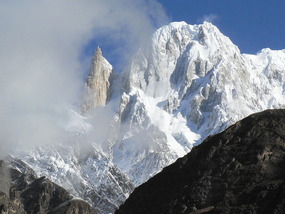
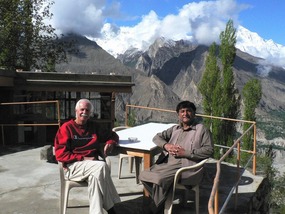
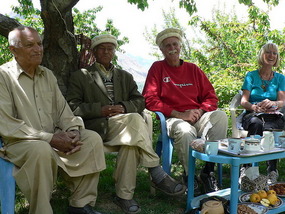
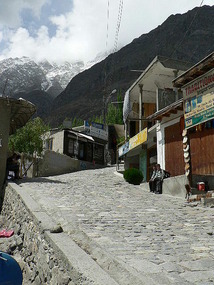
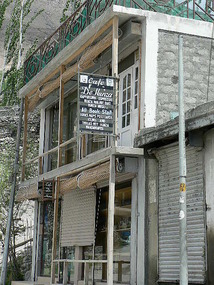
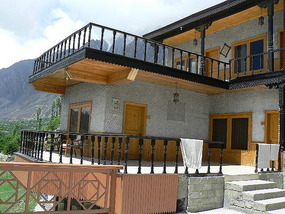

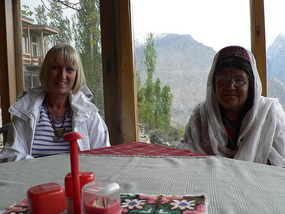
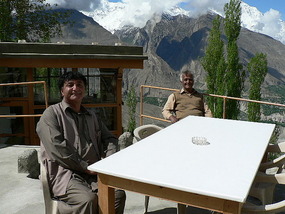
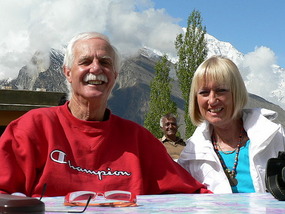





2025-05-22